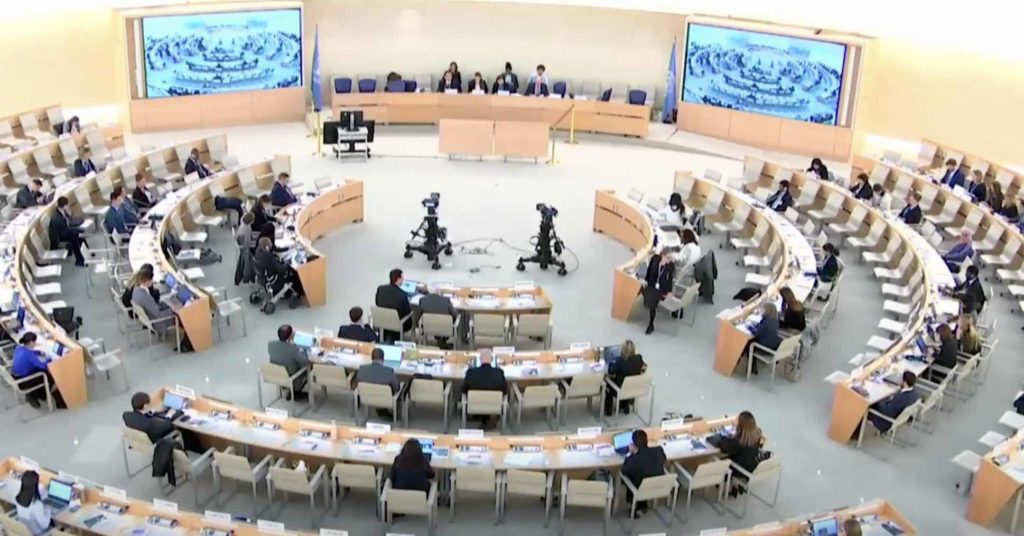Source: www.bic.org

UN Human Rights Council – 52nd Session, March 2023
GENEVA—20 March 2023
Mr. President,
Today, women in Iran have become a voice for justice that can no longer be silenced. Not only the mothers, daughters, and sisters of the nation, women have now become its conscience and its beating heart. But what Iran fails to recognize is that women are its most valuable resources, its hope for a brighter future. Indeed, addressing the gross violations of women’s rights will show the true measure of Iran’s commitment to dignity and human rights.
Iran now finds itself at a critical crossroads in its history. Will it continue to stifle the calls for justice? Or will it re-examine itself, its own laws, policies, its very foundations to ensure it stands in unity with its people? As it makes its choice, Iran must remember that no force can prevail against an idea whose time has come.
For Baháʼí women in Iran the path has been even more arduous. This June marks 40 years since the harrowing execution of 10 Baháʼí women in Iran, all hanged on one night for being Baháʼís. One was only 16, most in their 20s. During months of torture and imprisonment, they were told to abandon their faith or suffer the consequences. They chose to stand for justice and the right to tell the truth.
Today’s Iranian women, regardless of their faith or background, are continuing the same legacy — striving for justice and equality at any cost, even their lives. Since the 1979 Islamic Revolution, Baháʼí women have faced dual persecution, both as women and as Baháʼís. Currently, two thirds of all Baháʼí prisoners are women.
Mr. Rehman, we ask you: how do you plan to investigate the manifold discriminations faced by women of unrecognized faiths in Iran?
Leave a Reply